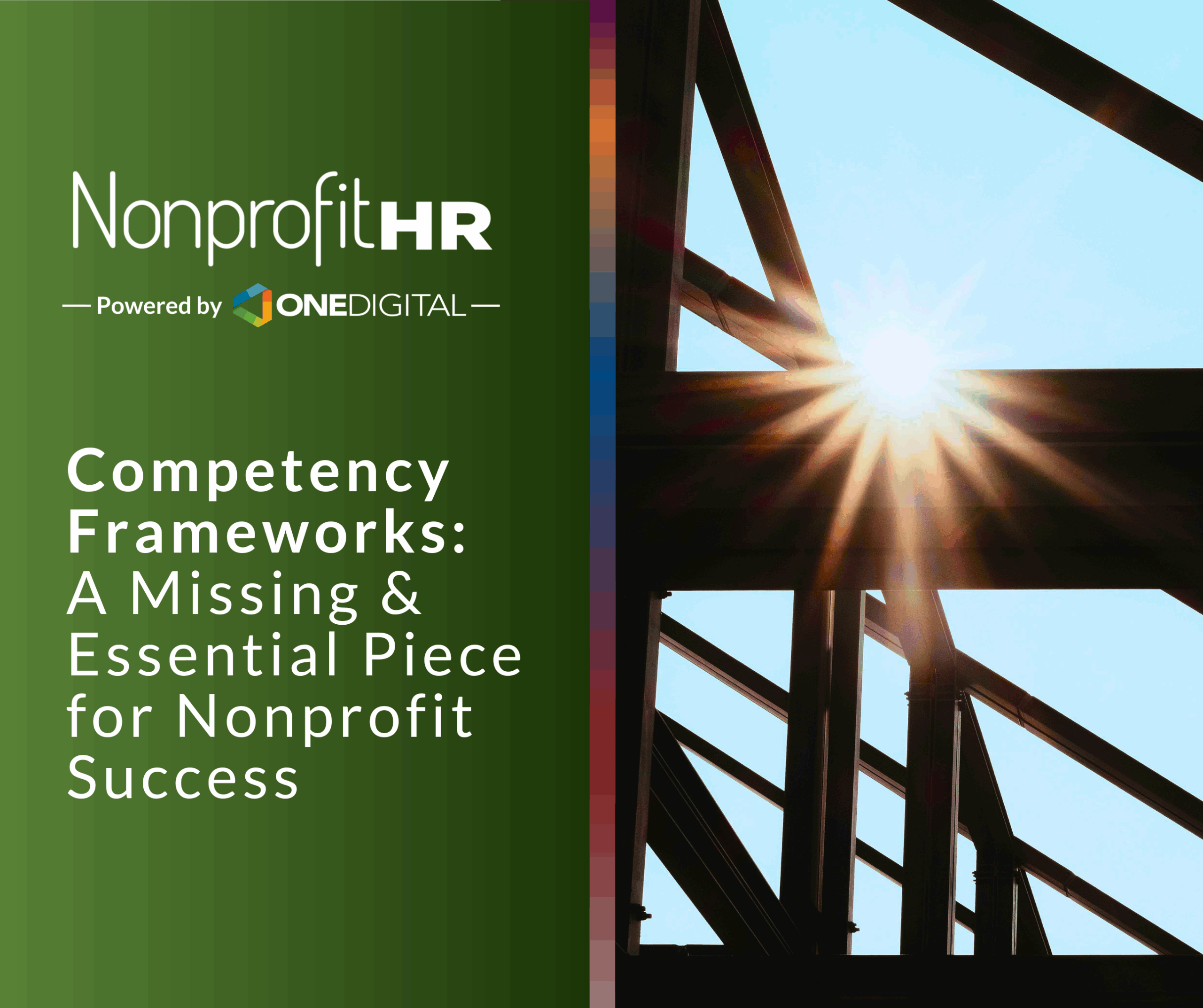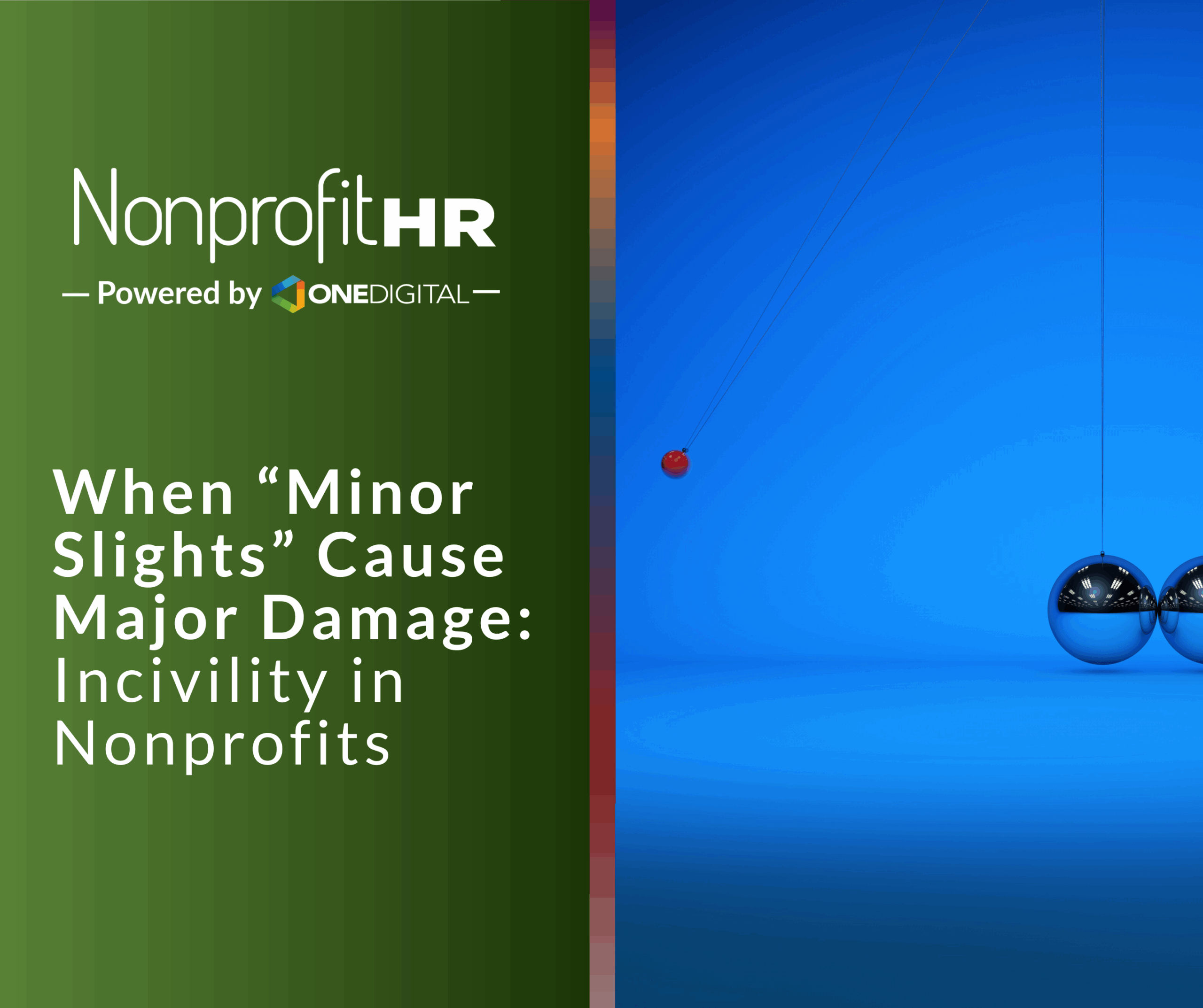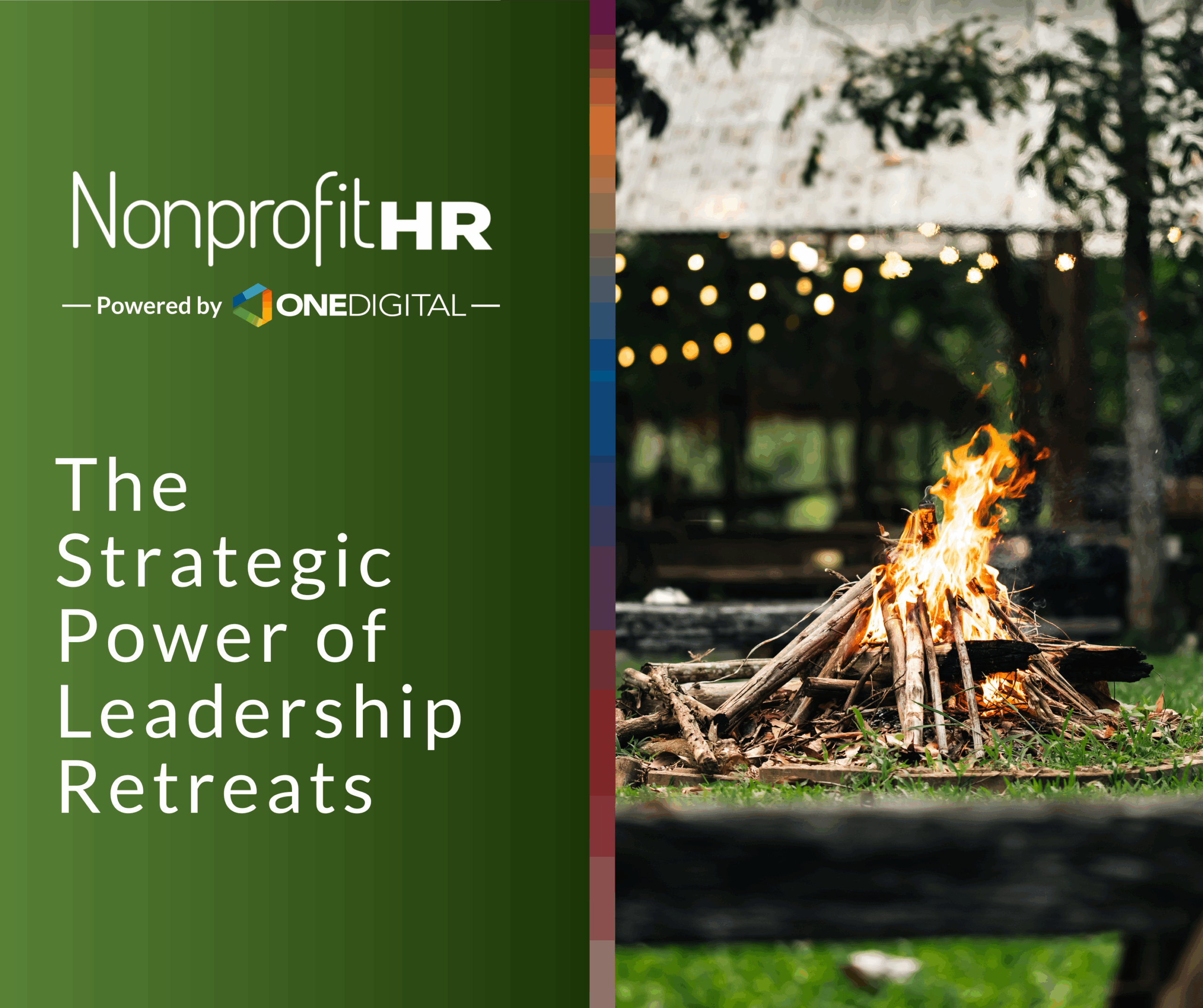WTOP: 5 ways nonprofits can…
HR as a Strategic Partner: In today’s rapidly changing nonprofit landscape, HR is no longer just about compliance or paperwork, it’s a strategic partner. An effective HR function knows how to develop an adaptable talent management strategy — a plan toward attracting, developing, engaging and retaining staff who stay aligned with your mission, driving and impacting growth, even in uncertain times.
Here’s how human resource practitioners partner best with nonprofits in this current climate:
Benefits For a Resilient Workforce
Nonprofits very often navigate fluctuating funding cycles, a challenging economy and evolving political dynamics. Many cannot compete with the salary offerings of for-profit companies, so non-monetary benefits become a powerful tool for attracting and retaining top talent. Mindful of this, HR can help nonprofits identify benefits that not only meet employees’ needs but also align with the organization’s culture. This includes implementing non-monetary rewards, such as flexible work arrangements, programs and peer mentorship opportunities.
Overall employee well-being is critical. HR helps reduce burnout by fostering a supportive work environment and offering mental health resources. This might include implementing mental health initiatives, such as Employee Assistance Programs (EAPs), wellness days, and mindfulness workshops. Such strategies are aimed at maintaining morale, engagement and resilient staff, despite limited resources.
Learning and Development Strategies
In times of uncertainty, continuous learning isn’t just about skills; it’s about building an adaptable workforce. HR ensures teams have the tools and knowledge needed to innovate, pivot and thrive, even when resources are scarce, and priorities shift quickly. A World Economic Forum report predicts that 44% of workers’ skills will be disrupted within the next few years so presenting upskilling and reskilling opportunities for staff further increase an organization’s adaptability to change. This can be initiated through formal courses or, more feasibly for some groups, through offering minimal to no-cost opportunities to shadow or be mentored by colleagues with different expertise.
And in a sector where burnout can be prevalent due to high emotional demand, investing in professional development shows employees that the organization values their growth, boosting morale and overall job satisfaction. HR watches continuously for these flags, assessing any support or development staff need toward this end.
Risk Mitigation and Compliance
With the shifting regulatory environment, effective HR with the nonprofit sector ensures organizations stay compliant with labor laws, protecting their tax-exempt status and avoiding costly fines. Whether adapting to new labor regulations or handling temporary staffing needs, HR supports an organization’s ability to manage risk effectively in times of change. In the social impact sector, where volunteers are often sought out to support programmatic efforts, misclassifying this group, contractors or even employees can run the risk of getting hit with labor law fines or jeopardizing an organization’s tax-exempt status.
In cases when a nonprofit plans for programmatic changes, expansion or even the desire to hire remotely, HR will exercise due diligence in Federal, State and Local labor law regulations. It’s imperative that organizations remain abreast of everything from state-specific sick leave requirements to pay transparency practices and many other regulations in between.
Empowering Leadership
While effective HR is essential to balancing organizational strategy and risk mitigation with a healthy & productive culture, leadership ultimately has the power to elevate or undermine these efforts. In any scenario — especially the most uncertain ones — employees look to leaders as guideposts on behavior modeling, work ethic, effective communication, aligning efforts to the organization’s strategy, mission and vision, and as key resources to ensuring their individual success. The most successful people leaders are committed to leveraging and supporting the development of their team members’ expertise and skillsets for the good of the organization.
Additionally, leaders must be aware of their own professional and personal impact. This means they need their own guideposts, and here’s where HR provides that foundation. This functional area can assess a leader’s opportunities for development, informing the type of facilitated training and ongoing support needed to hone specific skills in people leadership. In this climate, both nimble and thoughtful communication skills, change management techniques, empathy and other soft skills prove paramount for leaders. Further, HR may find the need to occasionally shift into a coaching role (or hire one), a relationship wherein leaders are prompted to think more deeply about their leadership styles and approach for effectiveness.
Leadership is critical when navigating change and many organizations recognize this: A Harvard Business Publishing survey revealed that strengthening ‘corporate’ culture was a primary goal (40% of all goals) in seeking leadership development programs.
Driving Inclusion and Belonging
When nonprofits adopt inclusive practices, they set an example of leadership and equality that extends to the communities they serve. Therefore, the inclusion and belonging of all staff must be embedded in through all their talent management practices. Whether in recruitment, learning and development, compensation or workplace policies, HR will secure the right expertise to help build and support an inclusive workplace for all employees. This directly affects the organization’s ability to develop impactful solutions, meet its goals and effectively serve diverse communities.
Agile Staffing
As nonprofits scale or adapt to new challenges, HR can provide essential support in recruiting the right talent quickly or helping staff transition smoothly when changes occur. In cases when an organization must scale its workforce quickly for special events, new programs or projects, effective HR will understand this cycle and put forward an adaptable recruitment strategy. This means knowing when to tap into temporary staffing, project-based or outsourced support without committing to long-term hires, which is especially valuable during periods of fluctuating funding or seasonal demands.
Alternatively, as organizations find the need to scale down and reduce their workforce, HR will strategize around maintaining essential skills across the remaining workforce, ensure the rights of protected groups while thinking through position eliminations, and more benevolently, handle employee transitions with thought and care. Many labor law requirements play into these scenarios as well, including required notice periods for layoffs, as well as handling final pay, benefit termination notices and severance payments, if applicable.
In summary, for an ever-changing landscape, HR will always play a pivotal role not only in maintaining operations but also in driving transformational change. This all starts with aligning workforce capabilities with evolving organizational needs. Even more, outsourcing HR for your nonprofit allows you to focus on your mission without getting bogged down in compliance, staffing issues, or leadership gaps. At Nonprofit HR, Powered by OneDigital, we understand the unique challenges nonprofits face, and we are here to help. Reach out today for a consultation to explore how strategic HR solutions can drive your nonprofit’s success in today’s dynamic environment.
Contributing Author
Samantha Justice Kelley, SPHR, SHRM-SCP, ACC, CPCC
Managing Director, HR Outsourcing
Nonprofit HR, Powered by OneDigital






























